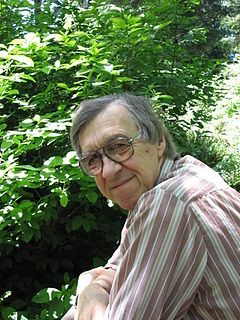A Quote by Joseph Priestley
In completing one discovery we never fail to get an imperfect knowledge of others.
Related Quotes
One of the reasons people might be fallible, why we might fail to do what we try to do isignorance, that we have a limited understanding of the laws of the world - the physical laws that govern the world and of all the particulars of the world upon which those laws work. And then there's ineptitude, meaning that the knowledge is available, but individuals fail to apply it correctly. The third source is "necessary fallibility." That is, we're never going to be omniscient, there is some knowledge that we will simply never achieve, and there are limits to what we will be able to do.
When speaking of a "body of knowledge" or of "the results of research," e.g., we tacitly assign the same cognitive status to inherited knowledge and to independently acquired knowledge. To counteract this tendency a special effort is required to transform inherited knowledge into genuine knowledge by revitalizing its original discovery, and to discriminate between the genuine and the spurious elements of what claims to be inherited knowledge.
All discourse of which others cannot partake is not only an irksome usurpation of the time devoted to pleasure and entertainment, but, what never fails to excite resentment, an insolent assertion of superiority, and a triumph over less enlightened understandings. The pedant is, therefore, not only heard with weariness but malignity; and those who conceive themselves insulted by his knowledge never fail to tell with acrimony how injudiciously it was exerted.




































